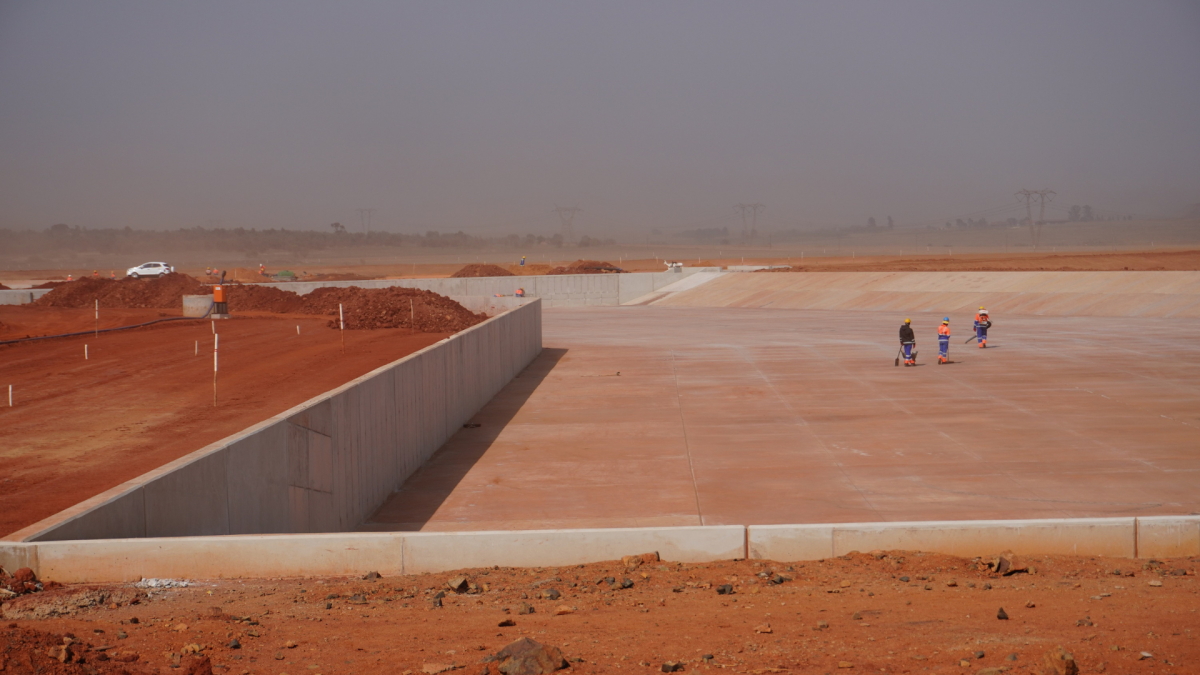
A new ash disposal facility (ADF) at Kendal Power Station is clearing the way for many more years of power generation. A joint venture between Concor and Lubocon Civils is tackling this demanding project, which is applying environmentally compliant solutions. Concor’s Pierre van Vuuren highlights that safeguarding water quality is a key priority behind the project design.
Eskom’s Kendal power station near Ogies is having its ash disposal facility (ADF) expanded in a multi-faceted contract by joint venture partners Concor and Lubocon Civils.
The project, says Concor contracts manager Pierre van Vuuren, will ensure that the new ash disposal facility is environmentally compliant with South Africa’s environmental regulations. The continuous ADF will store the ash generated by Kendal until 2032.
“At the centre of the project is the lined ADF, which will ensure that there is no contamination of groundwater,” says Van Vuuren. “The various infrastructure elements of this contract all make sure that polluted water is kept separate from clean water, and that water can be recycled to reduce consumption.”
The new ADF is being constructed on a 65 hectare footprint adjacent to the existing ADF, which is reaching the end of its operational life. The design includes a subsoil drainage system which allows clean groundwater to run into a clean water dam.
“An impermeable liner is placed over the subsoil drainage system, while another drainage system is installed above the liner,” he says. “The upper system allows water contaminated by ash to be channelled to the pollution control dam – from where it can be used for dust suppression.”
The clean water is also channelled to a dedicated dam, and is returned to the power station for re-use. Constructing the new ADF has also required the diversion of an existing natural stream, leading to a new 3 km man made channel being built.
“The stream diversion will withstand a 1-in-100-year flood, and has been lined with hand-filled gabion baskets to prevent erosion,” he says. “The 30 m wide stream contains over 4,100 gabion baskets, each measuring 1 m high, 1 m wide and 3 m long.”
To complete this mammoth task, about 120 workers were involved over a period of 19 months – packing 42,000 t of gabion rock into the wire baskets. More than 2000 Reno mattresses were also used. The project has employed hundreds of local residents and sourced extensively from local suppliers. It has also trained people in a range of construction-related skills, adding significantly to the skills base in the region.

